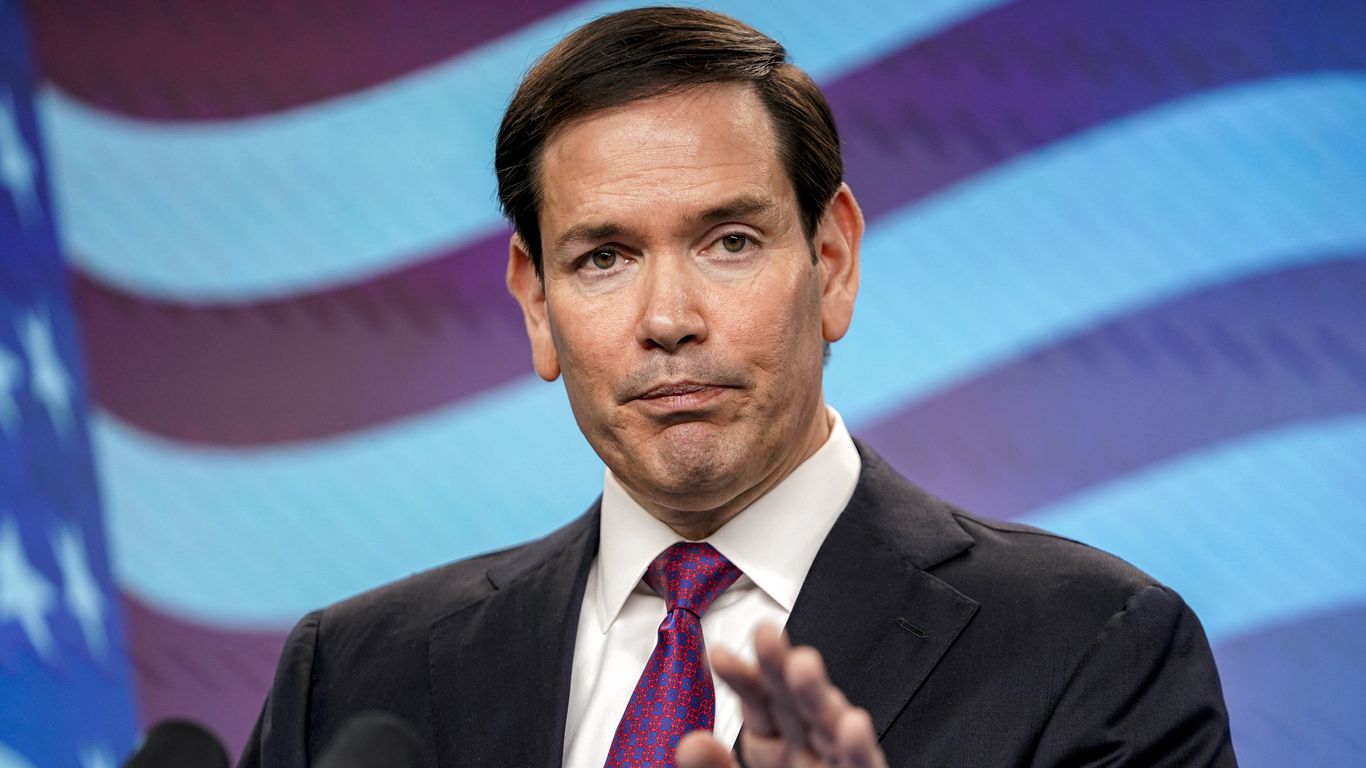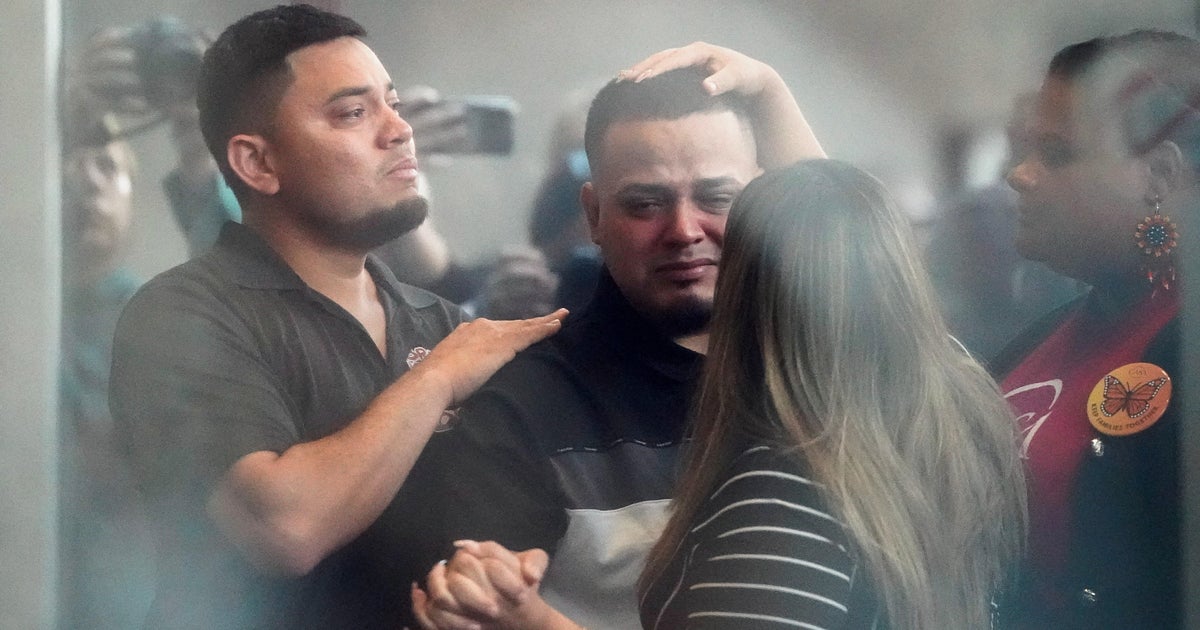Controversy and Confusion Surrounding Deportation of African Immigrants
#controversy #confusion #deportation #immigrants #ghana #u.s.
Introduction
In recent news, there has been a lot of controversy surrounding the deportation of four African immigrants by the U.S. Many have claimed that these individuals are still being held in Ghanaian detention, but the government of Ghana has come forward to contradict these claims. According to their officials, all immigrants deported by the U.S. have been sent back to their home countries. This statement was made on Monday, putting an end to the speculations and concerns about the well-being of these individuals.
Key Details
The government of Ghana has been under scrutiny for their handling of the deportation of these immigrants. However, they have provided evidence that all individuals have been safely returned to their home countries, including Nigeria and Somalia. This comes after lawyers representing these individuals expressed concerns that they were still being held in Ghanaian detention. The government has also assured that they have followed all necessary protocols and procedures in the deportation process, ensuring the safety and well-being of these individuals.
Impact
The contradicting statements from the lawyers and the government have caused confusion and concern for the well-being of these immigrants. While the government's assurance is a relief, it also brings attention to the need for clearer and more transparent communication in such situations. It is important for authorities to provide accurate and timely information to the public to avoid misinformation and speculation. The government of Ghana's statement also highlights the importance
About the Organizations Mentioned
U.S. government
The **U.S. government** is the national governing authority of the United States, structured by the U.S. Constitution into three coequal branches: **legislative**, **executive**, and **judicial**. This tripartite system ensures a balance of power through checks and balances, preventing any single branch from becoming too powerful[1][2]. Established in 1789, its foundational framework remains in continuous effect, guiding the federal government’s operations and authority across the nation and its territories[2]. The **legislative branch**, embodied by the bicameral Congress (House of Representatives and Senate), enacts laws, controls federal spending, and provides oversight of the executive branch[2]. The **executive branch**, led by the President and supported by the Vice President, Cabinet, and federal agencies, enforces laws, manages national defense, diplomacy, and domestic policy[1][4]. The **judicial branch**, headed by the Supreme Court and lower federal courts, interprets laws and their constitutionality, ensuring legal consistency and protecting civil rights[1][2]. Historically, the U.S. government has been pivotal in shaping modern democracy, pioneering a constitutional republic that enshrines freedoms such as speech, religion, and due process through the Bill of Rights[3]. Its achievements include establishing a stable political system, advancing technology and innovation through federal initiatives, and maintaining global leadership in economic and technological sectors. Currently, the U.S. government continues to evolve, adapting to contemporary challenges like cybersecurity, digital governance, and regulatory reforms impacting business and technology. It oversees large-scale federal programs, supports innovation ecosystems, and enforces regulations affecting technology markets and privacy[6]. Notably, its structure supports a dynamic interface between federal and state powers, alongside recognition of Indigenous tribal sovereignty[2]. In business and technology contexts, the U.S. government is a major regulator, market influencer, and funder of research, maintaining transparency and accountability through public resources like Go
Ghanaian government
The Ghanaian government is a constitutional democracy with a presidential system, where the President serves as both the head of state and government. Established under the 1992 constitution, the government is divided into three main branches: the Executive, Legislature, and Judiciary[1][2]. The Executive, led by the President, is responsible for implementing policies and overseeing the administration of the country. The President is elected for a four-year term, renewable once, and is supported by a vice president and a cabinet[5]. The Legislature, a unicameral parliament, is composed of 275 members elected for four-year terms. The Parliament is crucial for passing laws and holding the Executive accountable[1]. The Judiciary, led by the Supreme Court, ensures the rule of law and judicial independence[6]. **History and Key Achievements:** Ghana has a rich history of political stability, with power alternating between the National Democratic Congress (NDC) and the New Patriotic Party (NPP) since the inception of its current democratic system. Notable achievements include maintaining a stable democracy, promoting economic growth through major infrastructure projects, and implementing significant social policies like the Free Senior High School Programme[4][6]. **Current Status:** In recent years, Ghana has faced economic challenges, including a debt crisis and austerity measures. The government has been working on debt restructuring and enhancing fiscal discipline. President John Dramani Mahama, elected in December 2024, is focusing on economic recovery and development initiatives[6][7]. **Notable Aspects:** Ghana's government is also known for its emphasis on transparency and public engagement, as seen in initiatives like the Citizen's Budget, which aims to increase public awareness of government finances[3]. Additionally, Ghana continues to be a major player in regional and international affairs, maintaining strong diplomatic relations and participating in global economic forums[6].
Nigerian government
## Nigerian Government: Overview and Current Status The Nigerian government is a federal republic with a presidential system, comprising three branches: the executive, legislative, and judicial. The federal government is divided into 36 states and the Federal Capital Territory, Abuja. The current administration, led by President Bola Ahmed Tinubu, has been in office since May 2023, following his victory in the presidential election. ### History and Structure Historically, Nigeria gained independence from British colonial rule in 1960. The government has evolved through various political regimes, including military rule and civilian democracies. The current structure includes a Senate and a House of Representatives as the legislative arm, while the executive is headed by the President and the Vice President. The judicial system is led by the Supreme Court, with lower courts at the state level[3][10]. ### Key Achievements - **Economic Reforms**: The government has implemented significant economic reforms, including the liberalization of the foreign exchange market and the removal of fuel subsidies. These measures aim to stabilize the economy and improve revenue collection[5]. - **Budget Expansion**: The 2025 budget is nearly double the previous year's, focusing on stimulating economic activities across various sectors[2]. - **Judicial Autonomy**: The Supreme Court recently affirmed the autonomy of local government councils, enhancing their financial management capabilities[7]. ### Current Status Nigeria faces challenges such as high inflation, poverty, and insecurity. Despite these issues, the economy has shown positive growth, with a 3.9% expansion in the first half of 2025[4]. The government has initiated cash transfer programs to support vulnerable households but must address structural barriers to improve livelihoods[1][6]. ### Notable Aspects - **Diverse Legal System**: Nigeria operates under a mixed legal system, including customary law, Islamic law, and English-based statute law[3]. - **Challenges and Opportunities**: While corruption and security issues persist, the
Somalian government
## Overview The Somalian government, officially known as the Federal Government of Somalia (FGS), is the internationally recognized central authority of Somalia, a country in the Horn of Africa. Operating under a federal system, the government is structured into executive, legislative, and judicial branches, with the president as head of state and the prime minister as head of government[1]. The country is composed of both the federal government and semi-autonomous federal member states (FMS), each with its own constitution, government, and, in some cases, armed forces[2]. ## History Somalia’s modern governance has been shaped by decades of civil war, clan-based conflict, and state collapse. The current federal framework emerged in 2012 with the adoption of a provisional constitution, which sought to balance power between the central government and regional authorities[1]. The political system is deeply influenced by clan dynamics, notably the “4.5 formula,” which allocates key positions among major clan families and minorities[2]. The country’s recent history has been marked by efforts to rebuild state institutions, often with significant international support. ## Key Achievements Since 2012, the FGS has achieved several milestones: the adoption of a federal constitution, the establishment of a bicameral parliament, and the gradual extension of government authority beyond Mogadishu[1]. The government has also launched ambitious reforms, including plans for universal suffrage and one-person, one-vote elections, aiming to move beyond clan-based politics[4]. In 2025, Somalia initiated a national voter registration campaign, a critical step toward its first direct elections since 1969[8]. ## Current Status As of late 2025, Somalia faces significant challenges. Security remains precarious, with the militant group Al-Shabaab exploiting political and clan divisions to maintain influence[5]. Tensions persist between the federal government and some FMS, notably Puntland, which has opposed recent constitutional changes[4].

















